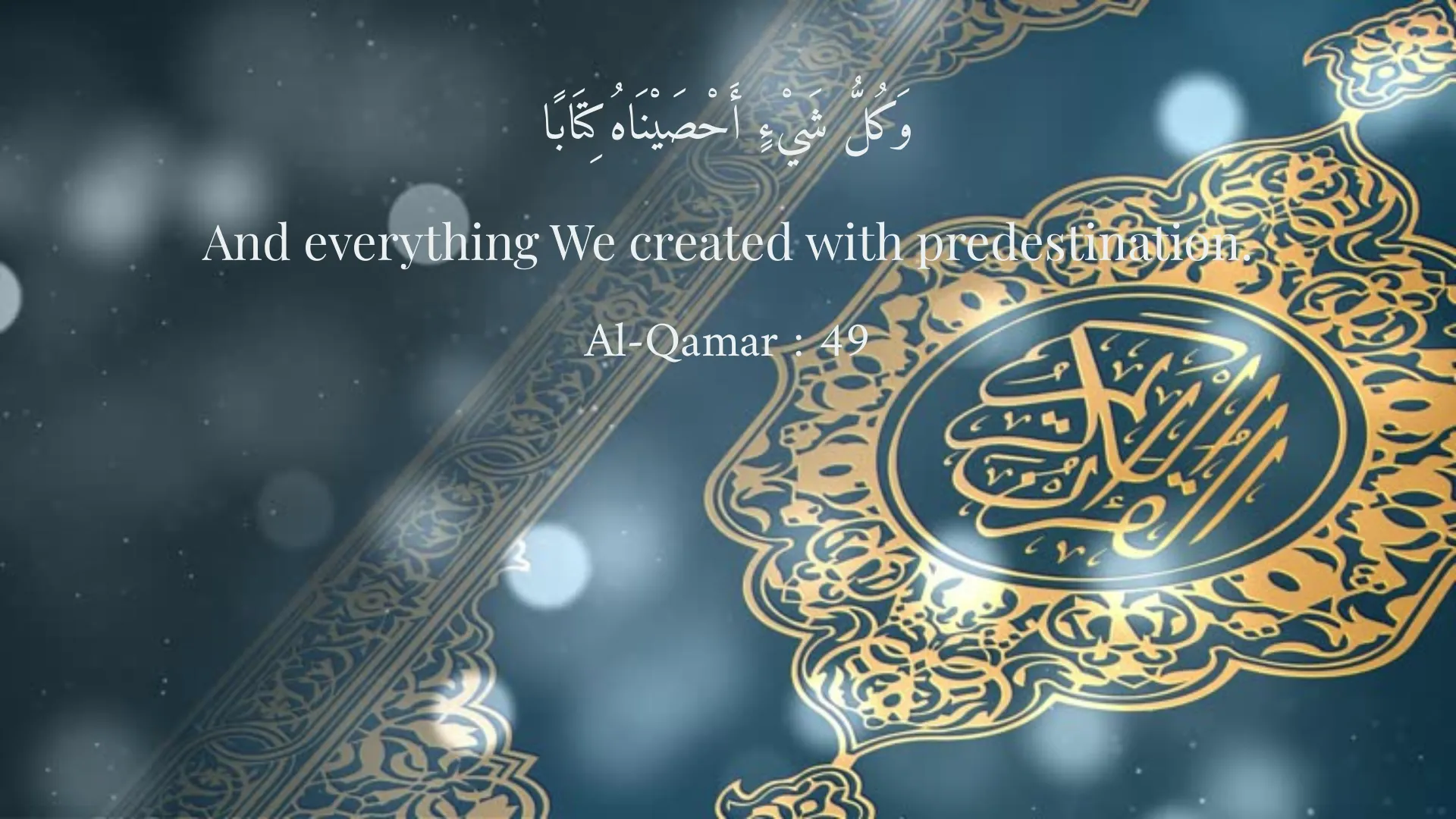Quranic Answer

Belief in divine predestination is a profound concept that has resonated with individuals and cultures throughout history. This belief signifies an acknowledgment of God's wisdom and pervasive knowledge in not only governing the universe but also in shaping the fate of every individual. The intricate relationship between free will and predestination is a subject that has sparked philosophical debates and theological discussions, particularly within the context of the Islamic faith where the Holy Quran addresses this theme in detail. Understanding Divine Predestination The notion of predestination revolves around the idea that God has preordained all events that occur in the universe. In Islamic theology, this concept emphasizes that God's knowledge transcends human understanding, inherently binding the destiny of each individual to divine wisdom. The Holy Quran, which is the ultimate source of guidance for Muslims, touches upon predestination in various verses that reinforce the belief in God’s control over all aspects of existence. One notable reference to predestination is found in Surah Al-Qamar, verse 49, where Allah states, 'And everything We have created with predestination.' This verse articulates the meticulous nature of divine orchestration. It suggests that every occurrence in our lives—whether joyous or sorrowful—is not a mere coincidence but rather an event that has been recorded and predetermined in the divine books. Such a belief serves as a reminder that, despite the multitude of choices we face, there is an overarching plan set forth by God. The Role of Divine Will Another important perspective on predestination can be drawn from Surah Al-Anfal, verse 17: 'And you did not throw when you threw, but it was Allah who threw.' This verse emphasizes that all actions, even those that seem spontaneous and driven by human agency, are ultimately governed by Allah's will. The acknowledgment of God’s involvement in every aspect of our lives can bring a profound sense of comfort and tranquility. It reassures believers that they are never truly alone and that divine support is always present, guiding them through their daily struggles. The Wisdom behind Calamity In the face of adversity, belief in predestination can function as a stronghold for many individuals. It is clearly articulated in Surah At-Talaq, verse 2, that 'And whoever fears Allah, He will make for him a way out.' This verse connects predestination with God’s wisdom, suggesting that no calamity befalls anyone without His permission. Thus, while we may confront trials and tribulations, these challenges are part of a larger framework defined by divine wisdom. The understanding that every difficulty has a purpose can instill a renewed sense of hope and resilience in believers. During challenging times, knowing that every event unfolds according to divine will helps to soften the blow of hardship. It promulgates recognition of the trials as opportunities for growth and development. Cultivating Patience and Perseverance Moreover, the belief in predestination encourages individuals to face the events of their lives with patience and perseverance. In Islamic tradition, patience (sabr) is a highly virtuous trait, and it is through the lens of predestination that one can cultivate this quality. When one acknowledges that God has a plan, it becomes easier to navigate through life's ups and downs without succumbing to despair. Additionally, this belief encourages an optimistic outlook on life. Muslims are taught that even when situations appear dire, there is always hope in divine mercy and wisdom. This sense of reassurance acts as a buffer against the uncertainties and unpredictabilities of life. In a world filled with chaos, belief in predestination serves as a comforting reminder that there is a greater plan unfolding. Predestination as a Source of Support Many scholars highlight the significance of belief in predestination as not merely a theological stance but as a profound source of support and comfort. This belief allows individuals to let go of the burdens of unattainable perfection and control over every circumstance in their lives. By trusting in God’s grand design, believers can find solace, embrace acceptance, and foster an inner peace despite prevailing difficulties. Moreover, understanding that every individual is under divine care cultivates empathy and compassion within communities. When individuals recognize that everyone is fulfilling a part of God's plan, they are more likely to extend kindness and support to one another, creating strong interpersonal connections. Conclusion In conclusion, the belief in divine predestination encapsulates a profound relationship between humanity and the divine. It extends beyond merely understanding fate; rather, it encompasses acceptance of God’s wisdom, finding comfort in his omniscience, and cultivating patience in the face of life's adversities. Through the lens of predestination articulated in the Holy Quran, believers can navigate life's vicissitudes with grace and dignity while remaining steadfast in their faith. Ultimately, faith in predestination is not only a foundational religious belief but also a vital source of comfort, resilience, and hope that supports individuals throughout their lives.
Related Verses
وَكُلُّ شَيْءٍ أَحْصَيْنَاهُ كِتَابًا
And everything We created with predestination.
Al-Qamar : 49
وَمَا رَمَيْتَ إِذْ رَمَيْتَ وَلَكِنَّ اللَّهَ رَمَىٰ
And you did not throw when you threw, but it was Allah who threw.
Al-Anfal : 17
وَمَن يَتَّقِ اللَّهَ يَجْعَل لَّهُ مَخْرَجًا
And whoever fears Allah, He will make for him a way out.
At-Talaq : 2
Short Story
One day, a man named Hassan felt a sense of hopelessness. He was facing many challenges, and instantly remembered the verses of the Quran. Hassan decided to practice faith in divine predestination in his life. He understood that everything relates to God's wisdom and that every problem has a solution. Not only was he able to cope with his challenges, but he also remained aware and grateful for the blessings of life.